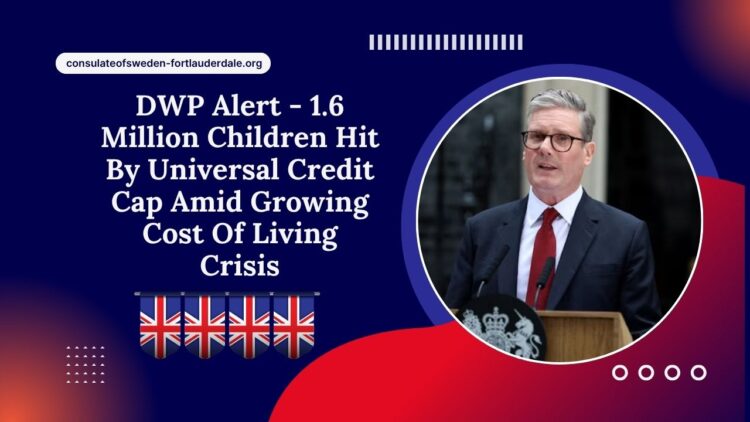The Department for Work and Pensions (DWP) has released new data confirming that over 1.6 million children are now affected by the two-child Universal Credit cap, as the cost of living crisis continues to strain households across the UK.
The figure marks a 2% increase in just one year, revealing the widening reach of a controversial policy that many campaigners and charities say is deepening poverty among large families.
What Is the Two-Child Benefit Cap?
Introduced in April 2017, the two-child limit restricts parents from claiming Universal Credit or Child Tax Credit for a third or subsequent child born after that date. The cap is part of a broader effort to reduce government welfare spending, but its impact on vulnerable families is becoming increasingly significant.
Key Policy Details
| Policy | Details |
|---|---|
| Start Date | April 6, 2017 |
| Benefit Limit | Only two children per household for UC or CTC |
| Annual Loss per Child (avg.) | £3,455 – £4,300 |
| Number of Children Affected | 1,665,540 (as of April 2025) |
| Number of Households Affected | 469,780 |
| Households Missing Child Element | 453,600 |
| Estimated Cost to Scrap Policy | £3.5 billion/year |
Rising Numbers and Diminished Hopes for Reform
In April 2025, DWP figures revealed 1,665,540 children living in households impacted by the two-child cap—an increase of 37,150 children compared to the same time last year.
Despite initial signals from the Prime Minister earlier this year to explore funding options to eliminate the cap, recent government commentary suggests that plans to scrap the policy have been shelved. A Treasury source described the move as “dead in the water,” particularly after a major welfare U-turn by the Labour Party.
With the cost of removing the cap estimated at £3.5 billion, the policy remains in place, despite growing criticism from campaigners and MPs.
The Financial Toll on Families
According to the Institute for Fiscal Studies (IFS), the two-child limit costs impacted families approximately £4,300 a year, effectively reducing their ability to meet essential costs.
The StepChange Debt Charity has raised concerns that the policy is exacerbating financial hardship, particularly as inflation, energy bills, and food costs continue to rise.
Peter Tutton, Head of Policy at StepChange, stated:
“Since the introduction of the two-child limit, the number of families with more than two children living in poverty has relentlessly increased… Parents with more than two children are significantly more likely to be behind on priority bills.”
Government Response and Pushback
A Government spokesperson defended the policy, pointing to broader reforms under the Plan for Change, which aims to move families toward employment as the best route out of poverty. Initiatives mentioned include:
- Expansion of free school meals
- Creation of family hubs across the UK
- Support for 700,000 low-income families through fair repayment rates on Universal Credit deductions
However, critics argue that these efforts do not adequately offset the financial damage inflicted by the two-child cap—especially for jobless families or those struggling to secure affordable childcare.
Impact on the Future of Child Poverty
Analysis from multiple agencies suggests that lifting the cap could significantly reduce poverty rates. In particular:
- 180,000 large families with no working adults could see substantial benefit increases
- Removing the policy aligns with the government’s stated goal of ending child poverty
Yet the high cost and political risk associated with reversing the policy make change unlikely in the short term.
As 1.6 million children are now officially impacted by the Universal Credit two-child cap, the tension between welfare reform and compassionate support has become more pronounced. With families losing thousands of pounds annually, the strain is mounting during a time of historic living cost pressures.
While the government maintains its position that work is the best route out of poverty, campaigners argue that current policy leaves too many families behind, especially those already living in deep financial difficulty.
Without urgent reforms or increased financial support, the outlook for low-income families with more than two children remains challenging and uncertain.
FAQs
What is the two-child limit on Universal Credit?
It’s a rule that limits child-related benefit payments to the first two children in a household, excluding third or later-born children after April 2017.
How much does the two-child cap cost affected families?
On average, families lose between £3,455 and £4,300 per year for each additional child not covered under the cap.
Will the government remove the two-child benefit cap?
Despite prior interest in exploring reform, current government sources say plans to remove the cap are unlikely, citing budget constraints.
